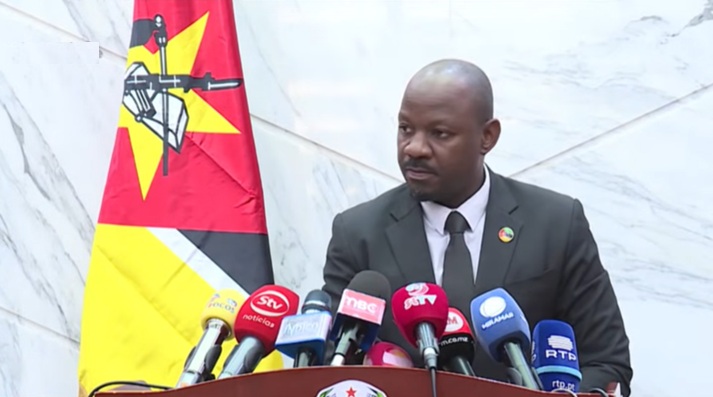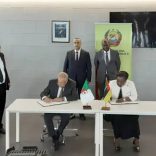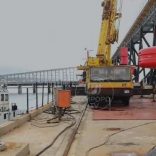Sonatrach inks MoU with Mozambique's ENH
Mozambique: Government aware of mining firms using ‘artisanal routes’ to circumvent Manica ban – Lusa report | Watch

Screengrab: Miramar
- Mozambique’s government said it is aware of companies trying to maintain mining in Manica province, where mining is currently suspended, by resorting to artisanal mining, indicating that it wants sustainable extraction measures and benefits for the community.
The Mozambican government is closely monitoring artisanal mining activities in Manica province. It is aware of companies attempting to maintain mining operations, currently suspended, by resorting to artisanal methods. The government emphasises the need for sustainable extraction practices that benefit local communities.
“We have noticed signs that some [mining companies] who were removed from the field are now using artisanal routes to continue controlling mining activities. However, the government is informed and present on the ground, with commissions and full force, to ensure mining can take place within a proper legal and sustainable framework that guarantees national benefits,” explained Inocêncio Impissa, spokesperson for the Council of Ministers, following its meeting in Maputo on Tuesday.
The suspension of all mining licences in Manica province was enacted on 30 September. The government set up an interministerial commission to review licensing regulations, strengthen oversight, and implement environmental restoration measures after repeated complaints of severe pollution in local rivers.
When asked about suspicions that companies linked to Mozambican officials continue mining despite the suspension, Impissa said all entities found operating illegally are being sanctioned.
“They are removed from the area. I do not know specifically who owns the companies; we have not received that information yet. When the Defence and Security Forces and the working commission arrive on site, their priority is not to identify company ownership but to take immediate action,” he said.
The government’s priority is to ensure compliance with environmental standards to prevent further damage. It also aims for local communities to benefit from natural resources.
“Those living in the areas where resources are extracted, at all levels of governance, including the government, must receive benefits from these resources,” Impissa said, stressing that mining benefits must reach local populations.
In October, the Council of Ministers decided the commission evaluating the environmental situation in Manica would continue on-site work, including overseeing environmental damage repairs by mining operators.
President Daniel Chapo stated on 17 September that mining was causing an “environmental disaster” in the region, confirming the total suspension of mining activities.
The licence suspension followed a review of a report by the operational command of the Defence and Security Forces (FDS), which inspected the province from 17 to 19 July to assess the environmental impact of mining.
The commission found “uncontrolled mining” by licensed operators, with companies operating without environmental recovery plans or waste containment systems, alongside violations of workers’ rights.
“Risks to national security and sovereignty were also identified, as foreign groups involved in illegal mining were found entering through informal routes, feeding parallel networks of gold trade, extortion, and public insecurity, creating social tensions,” Impissa stated.
The government described the environmental situation in Manica as “critical,” highlighting “severe pollution” of rivers with “reddish, cloudy, and opaque water” caused by direct ore washing and untreated waste disposal from mining activities.












Leave a Reply
Be the First to Comment!
You must be logged in to post a comment.
You must be logged in to post a comment.